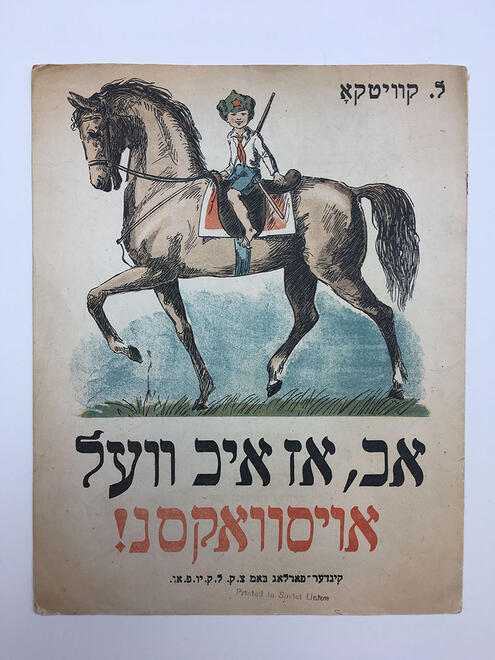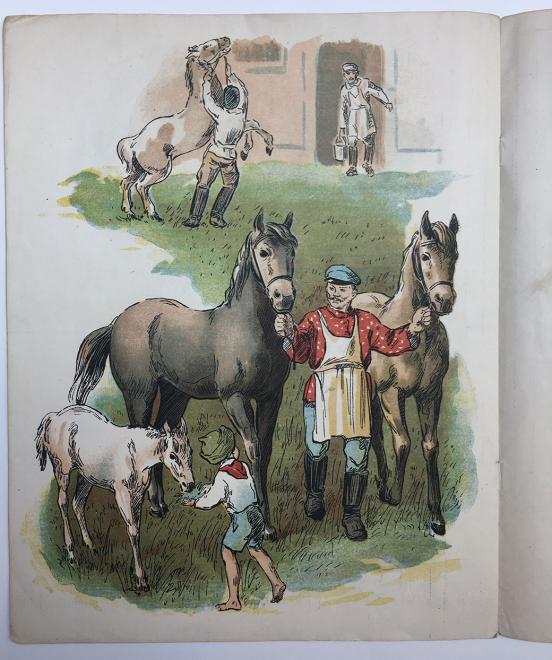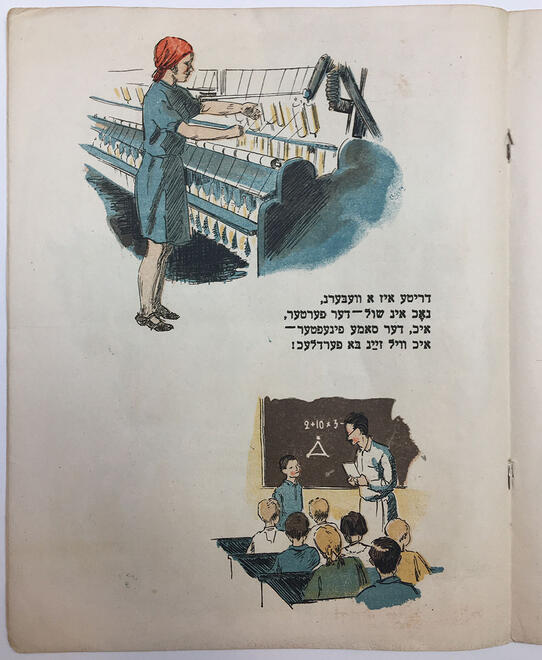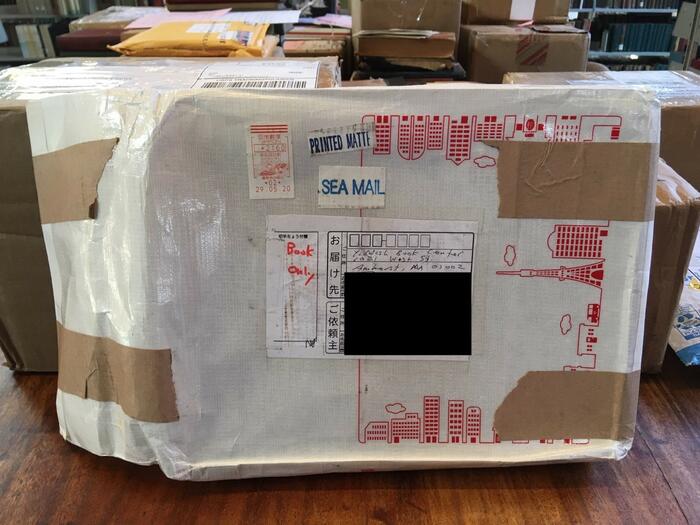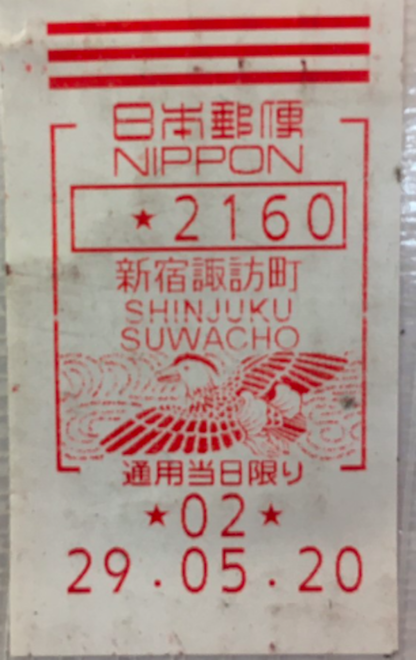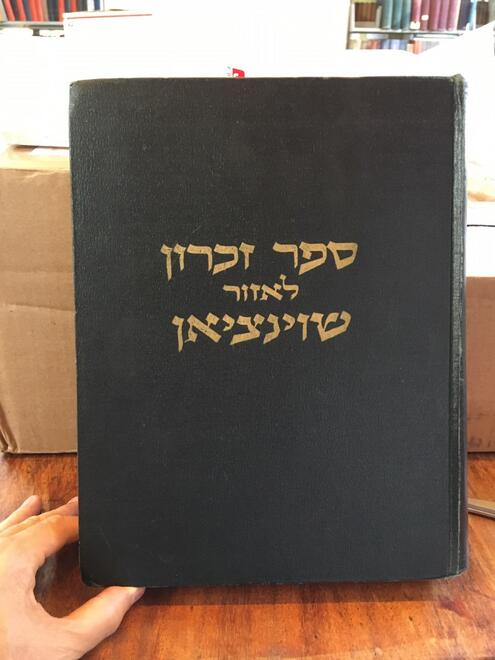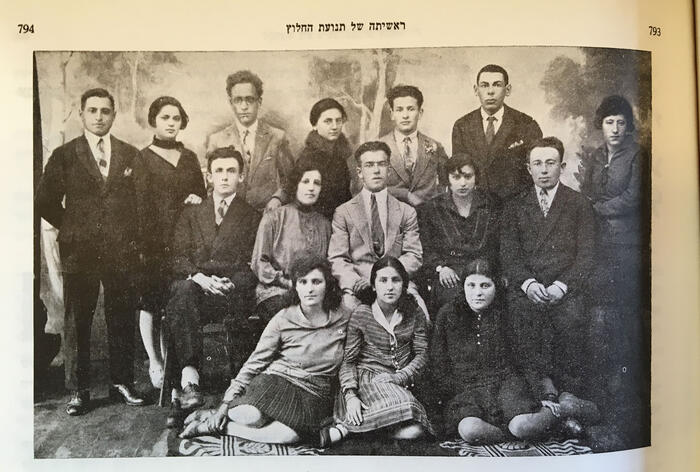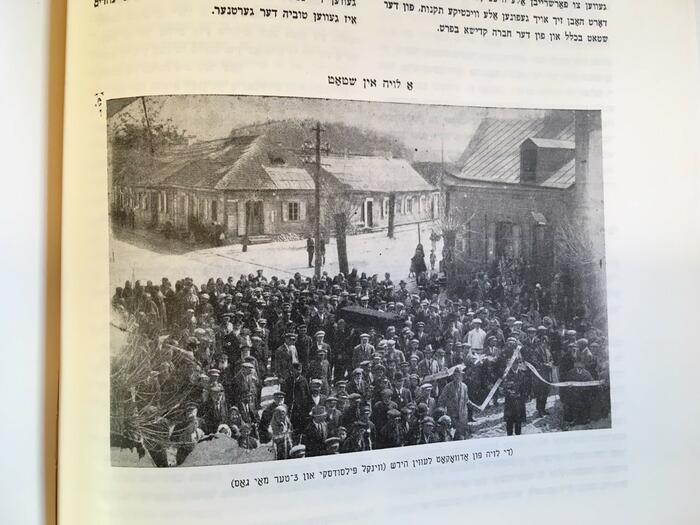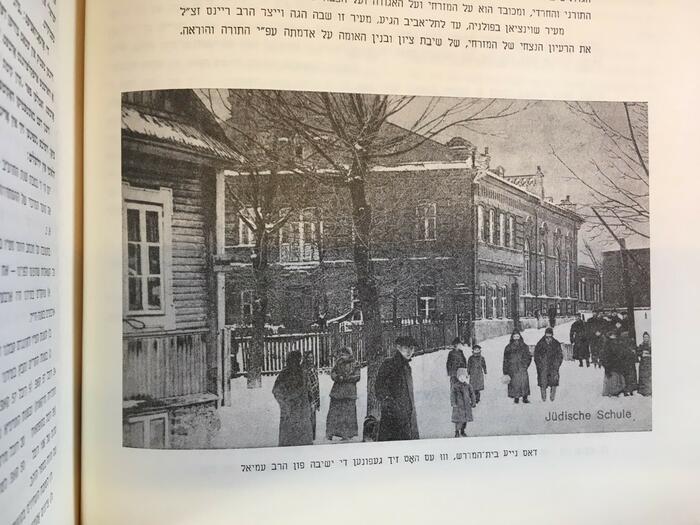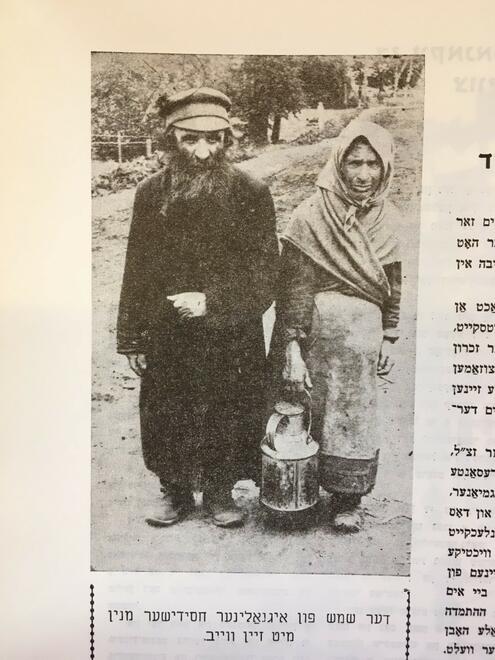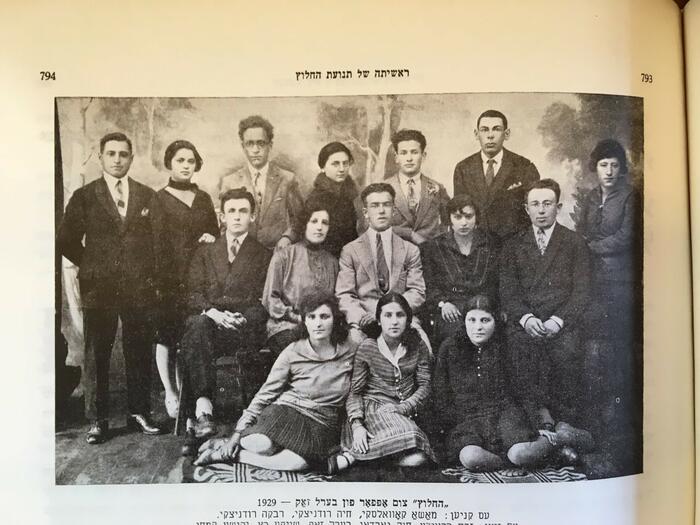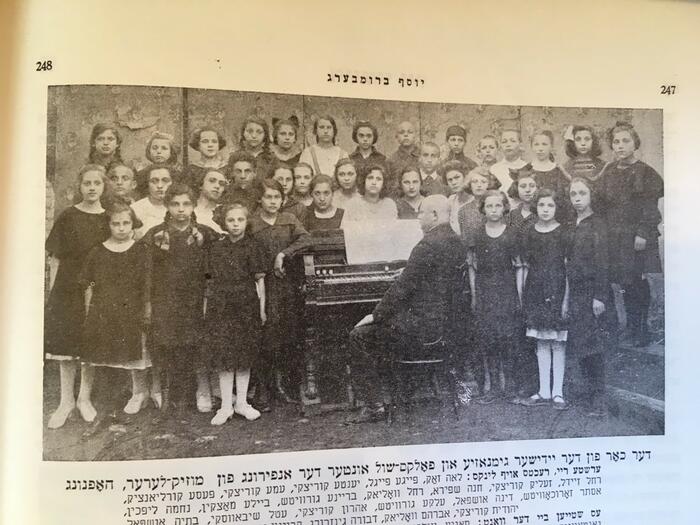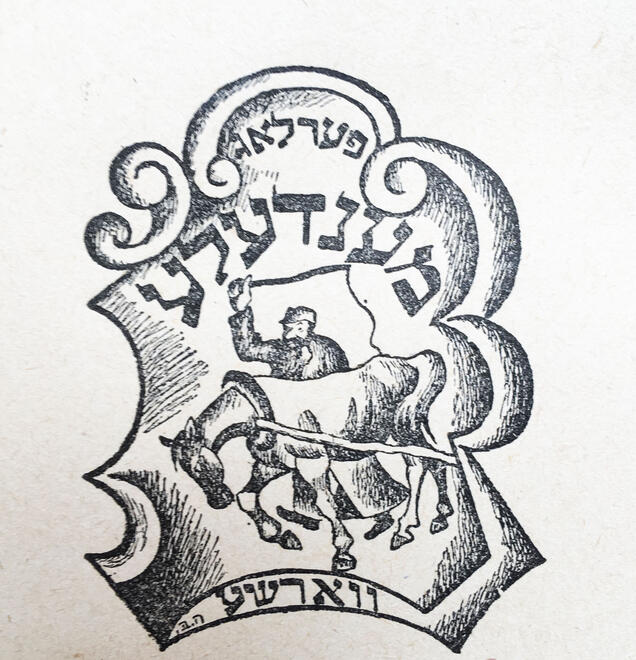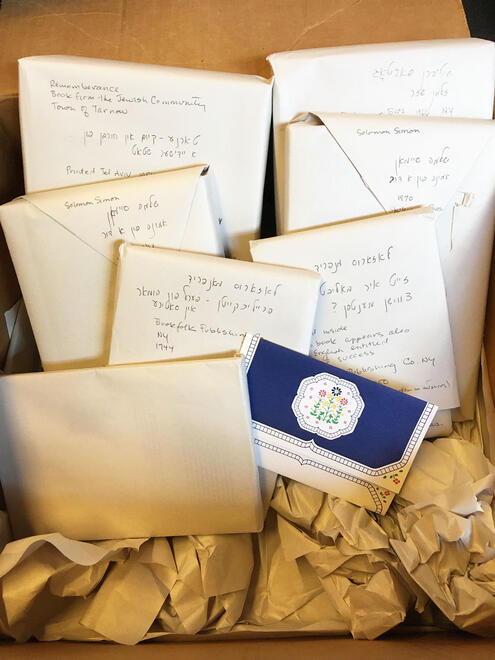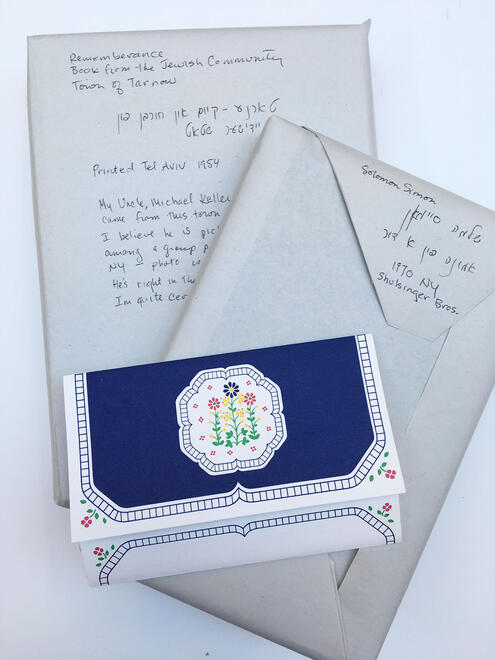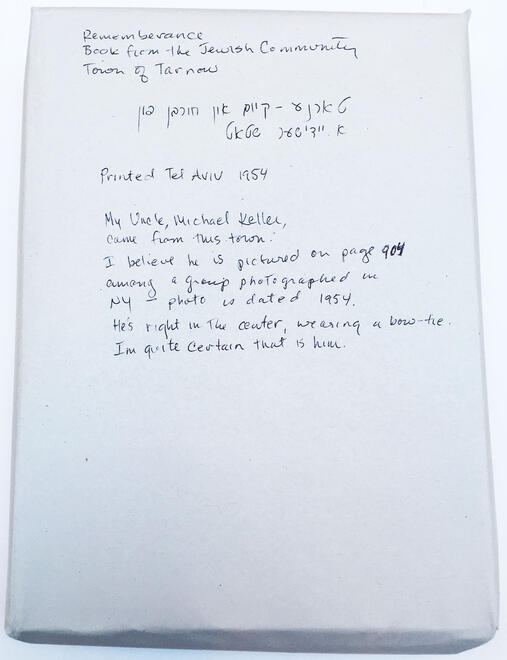Just Wait Till I Grow Up! And Other Recent Donations
The US boasts a stockpile of processed cheese, reported to contain upwards of one billion pounds. The European Union used to have a surplus wine lake. Not to be outdone, the Yiddish Book Center has not one but two book piles. There’s our historic book mountain, collected over forty years (1.5 million volumes and counting). And now, as a result of the pandemic, we also have a book mound. It started back in March with a few boxes. With donations continuing to pour in, and limited staffing to open boxes due to the building's closure to the public, it’s now reached close to three figures.
One recent donor, the psychologist Dr. Judah Ronch, spelled it out to me: “This quarantine has given me a lot of time to do things I’ve not done before. I went through some boxes of my father’s books and found a couple of Yiddish children’s books that hadn’t been touched for almost fifty years. I thought you should have them.”
Judah grew up in a Yiddish-speaking home in the Bronx. His father was the writer Isaac Ronch, his mother Ida a bilingual Yiddish-English secretary. The box of books he donated contained many works by his father and two extremely rare 1930s Soviet Yiddish booklets for children. One is a translation of a story by the classic Russian writer Mikhail Lermontov. The other, a story in rhyming verse by Leib Kvitko, is richly illustrated and features a lad who loves riding horses and dreams of joining the elite Red Cavalry when he grows up.
NOTE: When viewing in Firefox browsers, there is an extra long space beneath each slideshow before the next text paragraph. We are working to resolve this issue and appreciate your patience in scrolling through.
Akh, az ikh vel oysvaksn! (Just Wait Till I Grow Up!) by Leib Kvitko
The donations we receive range from multiple heavy boxes to a single packet, and the work of opening them and discovering what’s inside is one of the delights of working at the Center. Dictionaries, primers, translations, slim poetry volumes, and oversized music sheets spill out in unpredictable profusion; the education in Yiddish culture and publishing is endless and eye-opening.
One particularly decorative package arrived out of the blue a few weeks ago from Japan—the first donation from that country I’ve seen in my time at the Center. To our astonishment, it contained an enormous Yizkor (memorial) book for twenty-three Jewish communities on the border of Lithuania and Belarus. Stretching to almost a thousand pages, the book illustrates the complete spectrum of prewar Jewish life in these small towns, as well as the history of the Holocaust in the area.
Yizkor (memorial) book for the region of Svintzian
The collected works of classic Yiddish authors—Sholem Aleichem, Peretz, Mendele, and Asch—turn up almost every week among the donations. Many of these books show signs of having been read and enjoyed over many years, complete with pencil notes and laundry tickets bookmarking favorite stories. But even here there are constant surprises. Victor Bers recently donated a beautiful group of eight volumes from a rarely-seen luxury edition of Mendele’s collected works. Published in Warsaw in the late 1920s, the edition’s logo features a worn-out horse—presumably a reference to one of Mendele’s most popular early novels, Di klyatshe (The Workhorse). The books are in wonderful condition, with the lettering and Mendele’s portrait embossed in gold.
Collected Works of Mendele, Warsaw, 1928
Just when you feel you’ve seen it all, there’s always a donation that surprises and delights. Like the large, square box mailed recently from Jamaica Plain, just outside Boston. I guessed it contained records, and so it did: four of them, autographed by the artists during vacations at Camp Kindervelt (Children’s World) in upstate New York. But there were also eight books, each one lovingly wrapped in white paper with a handwritten note in beautiful Yiddish script about the book and its condition. Each item was cushioned as carefully as if it were a Fabergé egg; the whole box was like a gift hamper from some exclusive boutique.
Gift Box
As if that wasn’t enough, the donor included a card explaining that “the enclosed books are donated in memory and in honor of my parents . . . with appreciation for your Center’s efforts to preserve this culture for future generations and for enjoyment today.” One day, not too far distant, the book mound will disappear from our Great Hall and we’ll unwrap each of these books. But for now, we’re leaving them as they are. They are a perfect symbol of why we are here, of the love for Yiddish and the generosity of so many donors that has enabled the Center to flourish over four decades.
—David Mazower

